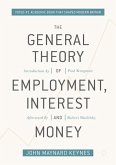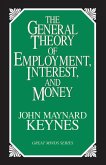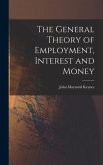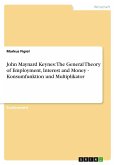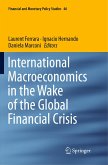The central argument of The General Theory is that the level of employment is determined not by the price of labour, as in classical economics, but by the spending of money (aggregate demand). Keynes argues that it is wrong to assume that competitive markets will, in the long run, deliver full employment or that full employment is the natural, self-righting, equilibrium state of a monetary economy. On the contrary, underemployment and underinvestment are likely to be the natural state unless active measures are taken.
Hinweis: Dieser Artikel kann nur an eine deutsche Lieferadresse ausgeliefert werden.
Hinweis: Dieser Artikel kann nur an eine deutsche Lieferadresse ausgeliefert werden.


